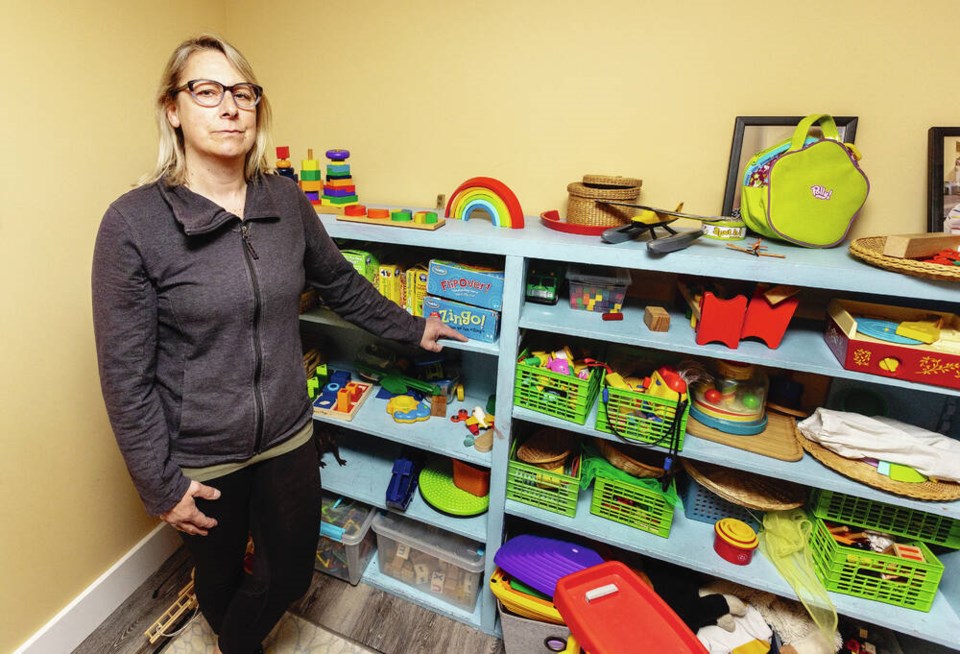Daycare operators are feeling frustrated and pinched by a provincial program aimed at reducing child-care costs for parents.
B.C.’s Child Care Fee Reduction Initiative cuts costs for parents by providing funding directly to child care providers that enrol in the initiative. Providers must apply to receive funding and agree to certain terms, such as fee caps.
For Nicole Alexander, who has been running a child-care centre out of her Victoria home for more than three decades, enrolling in the program means reducing her fees by about the cost of one child’s care per month. She generally cares for seven children at a time.
When the program was rolled out, Alexander opted not to enrol, because the savings to parents weren’t significant. But the savings increased in December by potentially hundreds of dollars each month. The exact amount depends on the child’s age, ranging from a maximum savings of $900 per month for full-time care of a three-year-old or younger to $95 for a preschool-aged child.
Alexander feels her hands are tied. She doesn’t want to prevent parents from having their costs significantly reduced, but it comes at a financial cost to her.
“I will be paying the difference in those fees. I will be the one to go without,” Alexander said.
Reducing her fees means she won’t be able to continue some of the extra services she provides, including feeding lunch to the children in her care, she said.
Alexander questions why funding isn’t funnelled directly to parents, leaving providers out of the equation.
Other providers, such as Alisha Neumann, who owns centres in Nanaimo, Chemainus, Ladysmith and one opening this week in Lake Cowichan under the umbrella company Inquiring Little Minds, are struggling with delays in funding.
Neumann has just gone through a contract renewal with the province, required each year for providers enrolled in the initiative.
However, one of her centres has not received approval for the coming fiscal year, which means it has not received any funding for the coming month, which Neumann expects should be $60,000.
She’s taken out a line of credit to cover this scenario, because it’s not the first time funding from the province, which now amounts to about 70 to 80 per cent of her revenue, has been delayed. She’s experienced delays of up to three weeks after yearly contract renewals, she said.
When the money doesn’t arrive on time, she’s forced to decide between requiring parents to pay full fees at the start of the month and reimburse them when funding does come in, or pay tens of thousands out of her own pocket.
“I think that there would be a whole lot less panic if everybody was just getting the money on time,” she said.
In a statement, Minister of State for Child Care Grace Lore said she understands this time of year for renewal is challenging and creating a lot of anxiety for providers and parents. The ministry is working on improving the renewal process for next year.
Over 90 per cent of eligible child care providers are enrolled in the initiative, which is helping 70,000 families reduce child care costs, she said.
Funds are going directly to providers, instead of to parents, to ensure subsidies aren’t eaten up by rising fees, something seen in other countries, she said. Providers are also eligible for enhanced funding to cover operational costs.
“I appreciate their patience as ministry staff work to ensure providers are getting the funding they need so that families receive the maximum benefit of the fee reductions through reduced monthly child care costs,” Lore said.
>>> To comment on this article, write a letter to the editor: [email protected]



